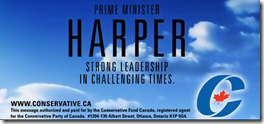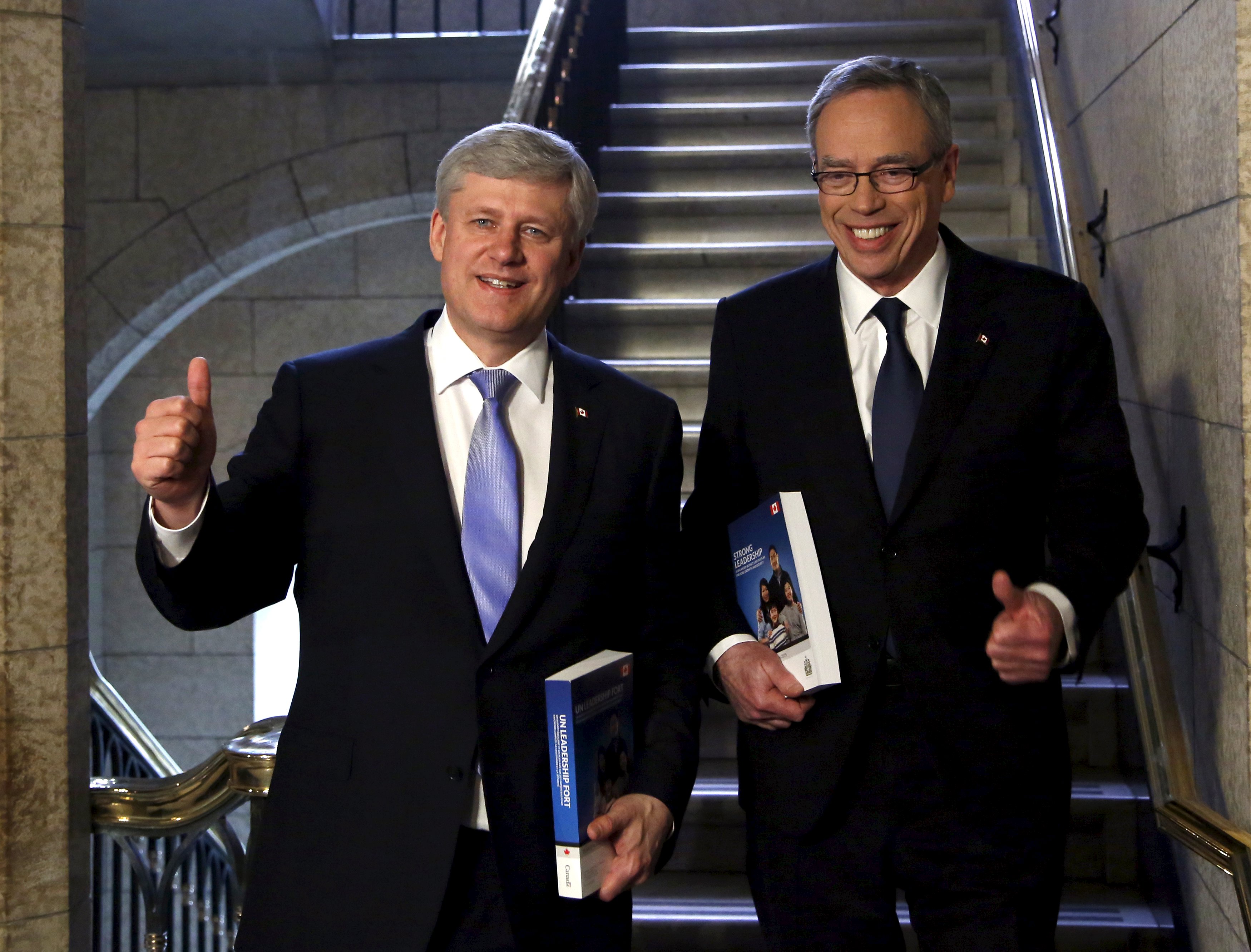
Conservative Strategy: Easy to Follow, Difficult to Beat
Rae didn’t make his defense against Conservative attacks of his record easy. By admitting on January 11, that the deficit increased and so did the debt, and admitting that some decisions were unpopular, Rae played into the Tory machine and if history has taught us anything, Liberals who get targeted by the machine struggle to win national support.
“While it’s also true that Ontario’s deficit and debt went up, yes that’s correct, they went up far less than the current Conservative Government,” Rae said on January 11.
“In fact, Stephen Harper increased spending over two and a half times quicker than I ever managed to do as Premier of Ontario. So listen up, Mr. Harper, while spending in Ontario increased by about 15% under the Rae government, over four budgets, Jim Flaherty’s first four budgets increased program spending in Canada by close to 40%.”
Everything Rae said is true in this feisty speech but he not only gave the Conservatives confirmation for their argument, he weakened his defense that he was not solely responsible. Given the weight and effectiveness of Conservative ads, saying that your record isn’t as bad as his doesn’t cut it and he will have a hard time defending himself as interim leader. Don’t forget, they will brainwash Canadians and they already have a good control over what people think of their opposition – except for the unchangeable partisans.
However, given that the Liberals are in third place and given that they don’t yet have a permanent leader, this attack is uncalled for but be warned, it signals the attacks that will go to the Rae camp if it ever does decide to go for permanent leadership.
One would think that the goal of the attacks is to get direct votes – it’s not. The Conservatives thrive from a strong NDP because it splits the opposition in a way that is favorable to them. Chances are, the NDP will not gain the center – unless it becomes centrist. By attacking the Liberals, and pushing them to the left – which is also a part of failed Liberal strategy – the Conservatives effectively marginalize their opposition and dissect centrist voters.
They don’t get these voters by appealing to them, they get them by destroying any other centrist option and then cause a clash of their opposition. While the Liberals try to take NDP grounds, the Conservatives gain the marginalized in the dispute – either by a direct vote, or by the simple mechanism of them staying home.
Canadians have traditionally hopped between the Tories and Grits throughout history and thus we can imagine that most Canadians lie at a center between the traditional Center and right wing spectrum. So by pushing his opponents to the left, Harper effectively drives home big wins for his party – assuming they aren’t fraudulent. This is in its basics: divide and conquer.
So what is the right push from here on in? Many will argue merger, but merger creates an Americanized two party system which will ultimately fail and become one of the same species – look at the Democrats and Republicans; one of a kind. It is now up to one of the parties to move to center.
Either the Liberals and NDP philosophically switch positions or the Liberals start pushing with more Centrist – and even to some extent – inherit more soft Conservative stances and views. That is to say, support freedom as always, but inherit a tough on crime mantra and promote cuts and more prudent financial management – and most importantly, avoid tax hikes. Why tax hikes? This is the one argument that the Conservatives will win on. Apart from Alberta, Canadians are taxed enough – and to top it all, Harper brought in an HST (which ironically isn’t being strongly resisted by the opposition).
If an opposition party can inspire Canadians to a better future and do so in a way that costs them less money, they will vote for it. And if you are in Quebec, Ontario, PEI, BC, you will understand as you are being taxed the most with little to no gain. The politics of division will continue to give the Conservatives the keys to 24 Sussex, but an inspiring and charismatic leader along with a revolutionary vision may just be the key.
And note that whether or not Election Fraud did apply, the same principle and logic in the last paragraph (right above this one) should apply. Canada should strive for greatness, not good enough.




